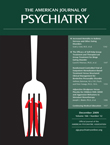The blogosphere has been buzzing with news of the demise of French cuisine for some years, so it is no surprise that we now have a traditional publication discussing the issue. The whole tumult started, I believe, with the famous “Judgment of Paris” tasting on May 24, 1976, organized by Steven Spurrier—the English wine merchant, not the 49ers quarterback—that revealed that head-to-head blind tasting of “new world” versus French wines came out in favor of California. The scene was wonderfully recreated in the film, Bottle Shock .
Since 2002, the British magazine
Restaurant has compiled a “best 50” list, and the dominance of the French Laundry, Fat Duck, and El Bulli over Ducasse, Robuchon, and Savoy has caused no mean consternation among the chattering chef classes in France. But it was probably the
New York Times Magazine article by Arthur Lubow in 2003
(1) that nailed the coffin shut, by asserting: “You can still eat very well in France, as you did 20 years ago. The problem is that almost everywhere you eat in France, it could still be 20 years ago. Nothing has changed.”
How could this have happened to what was arguably, along with Chinese cooking, the premier cuisine in the world? The history is well known.
Auguste Escoffier, whose classic book
Le Guide Culinaire (2) most of us still possess and consult in its original form and English translation, told us how to do it. And we pretty much stuck to it for most of the last century. Nouvelle cuisine might have been a mere blip on the screen had Henri Gault and Christian Millau not published the upstart challenger to the stodgy
Michelin Red Guide in 1965 that heralded the work of chefs such as Paul Bocuse, Alain Chapel, the Troisgros, Michel Guérard, Roger Vergé, and Raymond Oliver. And then the “new” cuisine became absorbed into the mainstream variety, and after a brief flirtation with cuisine minceur, Michel Guérard’s spin on it, things went back to normal.
In the 1960s and 1970s there were fads of innovation: the reinvention of millefeuilles, purées, “exotic” fruits, and interesting sauces. But a good magret de canard stayed pretty much the same. In addition, in the 1980s and 1990s, when the movements such as “slow food” and “eat produce coming from 50, 100, or 150 miles” were sweeping Italy, the United States, and even the United Kingdom, French chefs looked askance, saying that they were already doing that.
In fairness to French chefs, many did innovate and look to other countries and cuisines. It is said (in both
Burgundy Stars [3] and
The Perfectionist [4] ) that Bernard Loiseau killed himself in part because of his inner pressure to innovate (of course it helped that he had a biological depression for which he was being treated). And a group of French chefs, including David Zuddas (Auberge de la Charme) and Gilles Choukroun (MBC), in 2005, went to Japan seeking inspiration, as had William Ledeuil, whose cooking and staff at Ze Kitchen Galerie shows it rubbed off to this day.
Which brings us to the book at hand with its naughty and intriguing title. A good Parisian friend who writes for a most prestigious culinary magazine, eats French food almost every day of the year and loves most of it, but still says that “French chefs need a kick in the shins.” And Michael Steinberger is here to give it. He’s best known as a wine writer and contributor to Slate, although he previously wrote for Saveur, Food and Wine, The World of Fine Wine, Sommelier and Wine Spectator (the latter of which he left under a cloud). Despite the book’s title, Steinberger describes himself as an “unabashed and steadfast Francophile,” and this book reports on his extraordinary modern culinary journey.
Who is this book for? One might think just specialists in the history of French cuisine, but just as every American thinks he knows more than a psychiatrist, every psychiatrist thinks he’s an expert on French food and restaurants. Bon Appetit!

